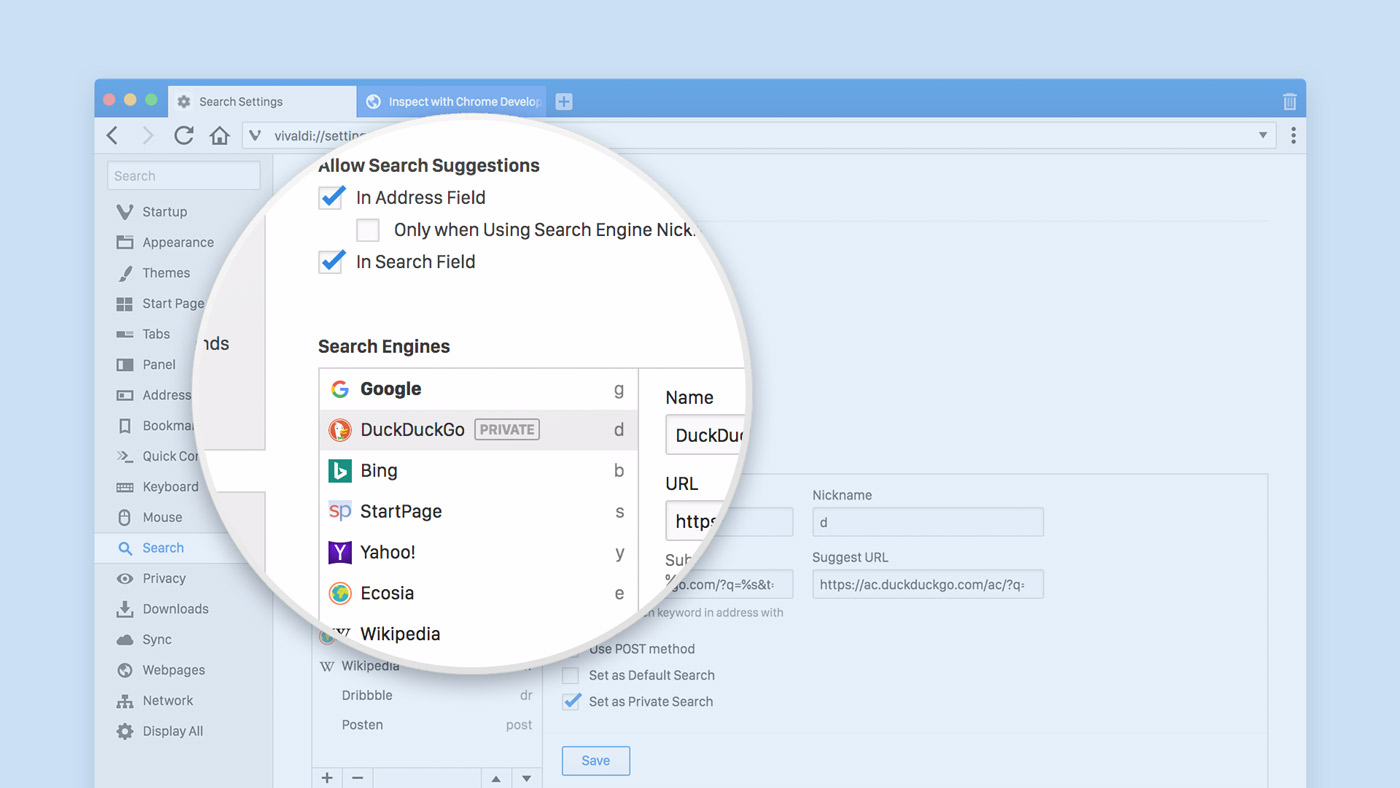

This feature will, without a doubt, save you a considerable amount of time since you can do all of this without leaving the browser.
Vivaldi browser privacy full#
The notes feature is pretty neat and thorough you can create folders that let you aggregate notes by topic, add the web address, add screenshots of the full webpage or the selected area you want, as well as attach images from your computer. Vivaldi lets you quickly add notes and take screenshots while you are browsing the internet, which is perfect when you are doing research and want to save some thoughts for later.
Vivaldi browser privacy install#
However, you’ll quickly see that there's a lot that can be done without needing to install any add-ons. Since Vivaldi is Chromium-based, you can add most of the extensions you can find on the Chrome Web Store. When it was originally released, Vivaldi was only available for desktop but in 2019 it released a beta version for Android. All of this, while still providing a certain amount of privacy since Vivaldi does not store its users' browsing history and uses end-to-end encryption when sending browser data between devices through its syncing feature. Moreover, it comes with so many features that you won't need to lose time hunting for extensions as you’ll already be getting a practical browser that’s perfect for multitasking. In fact, after you go over all the settings and tweak every single detail, Vivaldi won't even seem like it's based on Chromium at all. It provides one of the highest amounts of customization in the browser industry giving you the possibility to arrange everything, from tab positions to gesture mapping – making sure you end up with a browser that feels like your own. “Every feature can be approved.Vivaldi was created in 2016 by the former CEO of Opera with the objective of giving full control to the user.

“We have a massive amount of features we’re building on,” he said.

Over the past year, the company has also partnered with privacy-focused search engines Qwant and DuckDuckGo. While such data offers a tempting way to monetize users, von Tetzchner insists Vivaldi will never go down that road. Indeed, that issue flared again this week amid revelations that the latest version of the Google Chrome browser would automatically log users in by default.īy contrast, Vivaldi gathers no personal information and places no cookies to track users on their computer. Just as version 1.0 was rolling out, concerns about privacy were exploding in the public sphere, with tech giants facing growing questions about their collection and handling of personal data. “We’re aiming for a richness in the browser that you don’t find anywhere else.”ĭespite the long odds Vivaldi faces, the launch couldn’t have come at a better time. “What we’re gradually doing is polishing the browser,” von Tetzchner said.


 0 kommentar(er)
0 kommentar(er)
